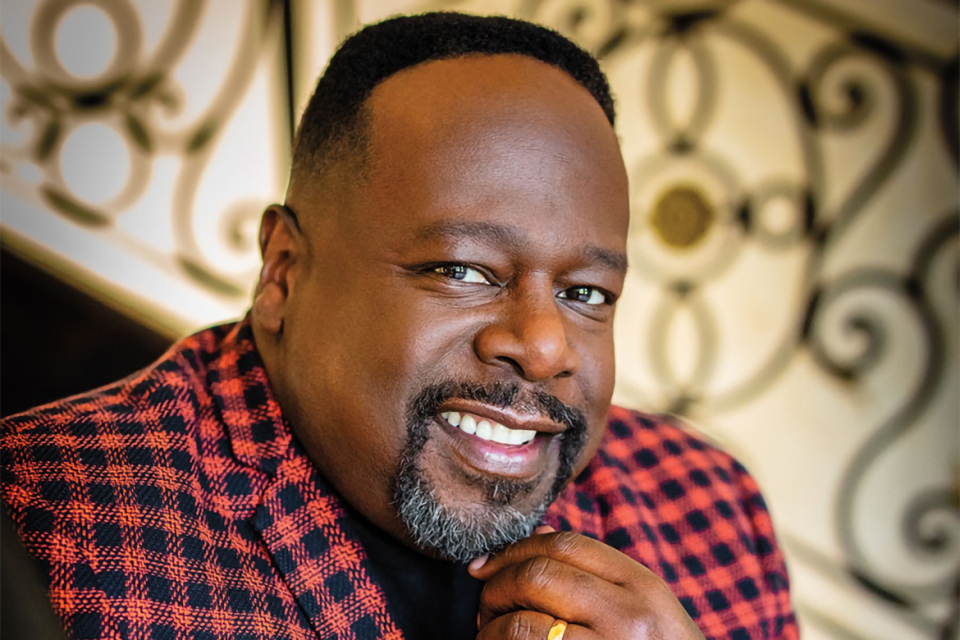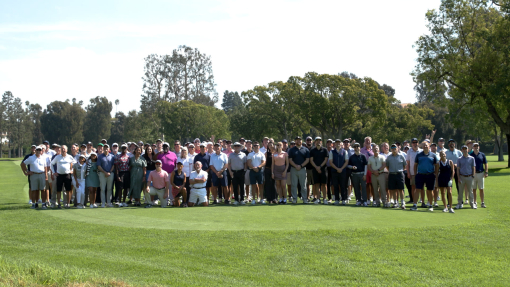It was two years ago, but Cedric the Entertainer still laughs about the time he sat down for a chat on The Late Show with Stephen Colbert and, nattily dressed in a tight silk suit, couldn't cross his legs.
On talk shows of yore, he recalls, "All the old-school gentlemen like Bing Crosby would have their suits on and look really suave and cross their legs. But crossing your legs is hard when your IT band hurts."
Cedric Antonio Kyles delivers that iliotibial truth with the same everyman exasperation he brings to Calvin Butler, the auto-repair-shop owner he plays on CBS's The Neighborhood. In addition to executive-producing that sophomore hit, he recurs on TBS's The Last O.G. as Tracy Morgan's supervisor at a halfway house.
He sidelines in serious flicks, too; he earned raves in 2018's First Reformed and costars as Martin Luther King's advance man Ralph Abernathy in the upcoming Son of the South. He also voices animated flicks and designs hats. He looks forward to doing stand-up again and mentoring the fledgling comics he takes on the road with him.
Ever since 1990, when he won $500 in a national stand-up contest in Chicago, Kyles's rise to fame has been steady. By 1993, he was hosting a comedy showcase on BET, and three years later he was costarring on The Steve Harvey Show.
That led to movies (including the Barbershop movies), four years on his own TV Land sitcom, The Soul Man (which he cocreated), and now, The Neighborhood.
One spring day (pre-pandemic), he spoke with emmy before heading to a development meeting. Later, he'd head home to be with his wife, Lorna Wells, son Croix, daughter Lucky Rose and their Yorkies, Trixie and Brooklyn; older daughter Tiara is the mother of his first grandchild.
Q: When did you first fall for entertainment?
A: Early on. I was a kid living in a small town, Caruthersville, Missouri — the boot heel of Missouri near the Arkansas border. My grandmother would watch The Jackie Gleason Show, and I thought he was bigger than life. He was a big guy, but he was light on his feet and had a funny sense of humor. He just came off as a star.
When you're in a small town, Hollywood seems even further away. But after we moved to Berkeley [a St. Louis suburb] and I traveled to Chicago when I was an adolescent, I started to see the world is big; there's opportunity, and stardom could actually happen for you.
Q: You were a communications major at Southeast Missouri State, but you sold insurance out of the gate?
A: Well, in 1988, I got hired to do fun news stories at the local CBS affiliate, when Entertainment Tonight and all those kinds of shows were really popping. But I never got to go to work [due to affiliate budget restraints].
So, in St. Louis I worked at Best Buy and sold fax machines for Ricoh. Then I landed a job at State Farm as a claims adjuster. I was doing well, but probably within a week of getting that job, I discovered I could do comedy.
Q: How does your upbringing inform The Neighborhood?
A: My mother [Rosetta] was a schoolteacher and a solid kind of personality. [She died of cancer in 2015; a pavilion at St. Mary's Hospital in St. Louis is named in her honor.] She made sure my sister and I were always dressed nice, were home at a certain time, that we dealt with everybody with respect. We had rules.
At the same time, I felt very free. We laughed a lot. So, even though we didn't have the father there, it felt like a solid home. And we try to put that feeling into The Neighborhood — to show the strength of family.
Q: Your character started off irked about the white couple (played by Max Greenfield and Beth Behrs) next door. Has this black modern-day Archie Bunker grown?
A: So many people wrote in saying, "Why is your character so racist?" What's great, though, is that that's kind of the point: once you know the truth about almost anybody in this world, once you meet them and you sit and talk with them, you realize that they're not the sum of whatever exterior thing you see.
By the middle of the second season, people got to see a diehard friendship between Calvin and Dave [Greenfield's character].
Q: Are you carrying the torch for Norman Lear classics like All in the Family?
A: This show was built to remind you of those shows, programs that talk about culture and race and differences, which I felt were missing. Those shows were extremely influential to me as a kid.
Good Times — even though it was about a projects family, and my family was more middle- class — felt real. The Jeffersons, too.
They were willing to tackle, with hard language and attitude, a lot of the tropes and misconceptions about other cultures and races. I feel like our show's in a natural place to do that, too, without trying too hard.
Q: What is missing from Hollywood's push for diversity and inclusion?
A: African-American males in the executive offices. We've been going around pitching in a lot of places, and it's rare to see a top-level male executive [of color].
Q: Comedy isn't all giggles. Have you ever battled depression?
A: The thing about this business is that there are a lot of ups and downs. I try to tell young comedians that there will be moments when you start to measure yourself by those who are gaining success — when somebody catches a wave and they're gone — and you're like, "When is it going to be my turn?"
And those things can really start to weigh on you, especially if you're married, you got kids. It is important in those moments to lift yourself up.
Q: How do you do that?
A: We tell most comedians, "If you fail, go right back on stage. Don't sit and be soaking in it." So, to deal with depression, I've tried to take that energy and just tear it up on the stage.
Q: Do you ever ponder giving up show biz?
A: At moments, the pressure of the grind can get to me. But I couldn't sit around and do nothing. I feel like I want to go hard, like George Burns. Let them take me out while I'm doing stand-up — or on a set, when I'm having a good time.
This article originally appeared in emmy magazine, Issue No. 5, 2020











